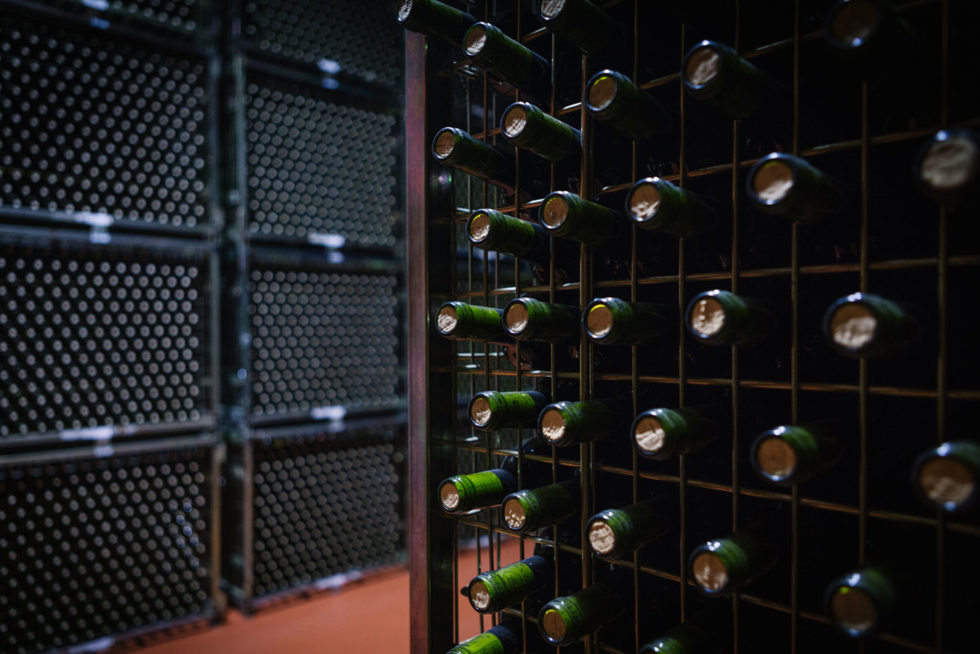Wine Storage in Atlanta, Georgia
Many clients frequently ask, “Why is wine storage in Atlanta challenging?” The simple answer is that Atlanta’s climate conditions present unique obstacles for wine storage.
Atlanta, situated in Georgia, experiences warm, humid summers and mild winters. Summer temperatures often fluctuate between 85°F (29°C) and 90°F (32°C), while winters usually range from the mid-50s°F (13°C) to the low 60s°F (16°C).
High humidity, often exceeding 90%, is a common trait of Atlanta’s summer, coupled with frequent thunderstorms and heavy rainfall. Conversely, winters are usually drier and sunnier, with humidity levels fluctuating between 40% and 60%. Keep in mind that humidity levels can significantly vary based on specific weather conditions and the time of day.
Understanding these drastic climate variations in Atlanta is crucial when deciding how and where to store your wine. This is because incorrect storage, in relation to temperature and humidity levels, can significantly impact your wine’s quality.
Temperature plays a pivotal role in wine storage. A consistent temperature between 45°F and 65°F (7°C and 18°C) is necessary, with 55°F (13°C) being the ideal. In Atlanta, summer temperatures can surpass 90°F (32°C), making it imperative to store wine in a consistently cool environment to prevent overheating and spoilage.
Humidity is another vital element in wine storage, with the optimal range being between 50% and 80% and the ideal humidity at 70%. Due to Atlanta’s hot and humid climate, it’s essential to ensure your wine storage has adequate humidity control to prevent the cork from drying out and leading to wine oxidation or spoilage.
Light control is also essential as intense ultraviolet light, especially during summer, can degrade the wine’s flavors and aromas, causing unpleasant off-flavors. Therefore, wine should be stored in a dark place or in a wine refrigerator that filters out light.
Moreover, continuous vibration, such as from traffic or construction common in a city like Atlanta, can negatively impact the wine’s flavor and cause premature aging.
The implication of all these factors is clear. If wine is stored incorrectly, many issues can occur. Excessive heat can cause the alcohol to expand, dislodging the cork, leading to wine oxidation and spoilage. If humidity levels drop too low, the cork can dry out, enabling air to enter the bottle and ruin the wine. Overexposure to light can make the wine “light-struck,” resulting in a foul odor and taste.
Historically, wine was stored in underground cellars that naturally provided cool and humid conditions. Nowadays, wine enthusiasts either create custom wine cellars or invest in wine refrigeration units. The latest trend is to use professional storage facilities that monitor all aspects of wine storage, including having backup systems for power outages or system failures.
With proper storage conditions, quality wines can age for decades or even centuries. For instance, a high-quality Bordeaux from a good vintage can age for 50 years or more with the right storage. Vintage Port and some top-notch California Cabernet Sauvignons can also age for several decades if stored appropriately.
BURGUNDY FOR KINGS, CHAMPAGNE FOR DUCHESSES, CLARET FOR GENTLEMEN. ~ Anon French Proverb
This article is part of Bottle Bank’s Wine Education Series (WES)
Bottle Bank is Atlanta’s premier wine lounge and private wine storage facility for serious collectors, connoisseurs and aspiring enthusiasts. #WineVaults


